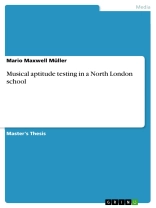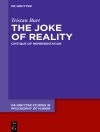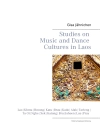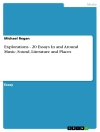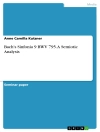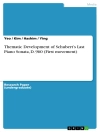Master’s Thesis from the year 2011 in the subject Musicology – Miscellaneous, grade: Distinction, , course: Masters in Music (Music Education) with distinction, language: English, abstract: Well-known musical aptitude tests designed by, among others, Seashore, Gordon, Bentley and Wing have been extensively discussed by several researchers, and this background is provided in this mini-dissertation. However, this research project was aimed at determining to what extent a newly
designed music listening test impacts on students‟ success rate in being judged to have particular musical aptitude. The purpose of this research was to evaluate what students score respectively for
four elements of music (pitch, melody, rhythm and texture) through a musical aptitude test designed by the author in consultation with colleagues in the Music Department at a school in North London in the United Kingdom .These tests were divided into two stages with students aged 10-13, of mixed genders and from different cultural backgrounds. The first focussed on the listening test (questionnaire) for a sample of 160 students. The second stage included practical performances (interviews and observations) and aural tests based on the elements: Rhythm, Melody, Improvisation, Two-part melody and Texture.
The results of the first stage revealed that the students particularly achieved high scores for the elements of music: melody and pitch. The age groups who scored the highest marks respectively were pupils aged 13. The results of the second sample of the respondents who completed the test revealed that the majority of the students had previous music tuition with the string instrument being the most
popular amongst respondents. This study revealed that students always respond to different sound qualities, followed by the identification of rhythmical patterns and melody. Their memory of pitch changes and develops further due to the possession of precise interval recognition and excellent memory recall.
About the author
Dr Mario Maxwell Muller studied and completed a Ph D in Philosophy (Arts and Social Sciences) at the University of Venda, South Africa). He has a triple master’s degree, First Class (with Distinction) from the University of Pretoria, South Africa, London College of Music, West London University, United Kingdom, and the University of the People, USA (Whilst studying at the University of the People, he concluded research papers on his research outputs in consultation with his supervisors Prof Geoff Mapaya, and Prof Mashua from the University of Venda, Faculty of Arts, Social Sciences, and Education SA).
He is currently an Academic reviewer for the South African Journal of Education, South Africa, whilst working full-time in Kenya. Dr Muller is an experienced Deputy Head of School, Author, Music Educationalist, Researcher, and IB Examiner. He recently concluded his NPQH (National Professional Qualification for Headship) course with LLSE, UK and in partnership with Cambridge University, and Canterbury Christ Church University, United Kingdom, and obtained all his degrees First Class/Distinction/Summa Cum Laude.
He was nominated among 13000 applications to be part of the six nominees representing West Africa for the Cambridge Dedicated Teachers Award for 2021, which was a great overall achievement.
His current research interests include STEAM (Science, Technology, Engineering, Arts, and Mathematics), STEM (Science, Technology, Engineering, and Mathematics), Music Education, Comparative Education, Curriculum Development, and Innovation globally.
He has published 7 articles in various journals including the International Journal of Social Sciences and Humanities Research (IJSSHR), the International Journal of Thesis Projects and Dissertations (IJTPD), and the International Journal of Interdisciplinary Research and Innovations (IJIRI).
Dr Muller has been teaching for twenty-three years in different leadership positions and has taught at prestigious schools in South Africa, England, Thailand, India, Mexico, Kenya, and Gabon.
He enjoys being a risktaker, principled and effective communicator, whilst serving as an Examiner for Music (HL & SL) for the International Baccalaureate programme.
Ensuring each child reaches their full potential through an IB curriculum is essential, through promoting inquiry-based learning, cooperative learning and collaboration for students to work together, with a strong emphasis on “International Mindedness”.
